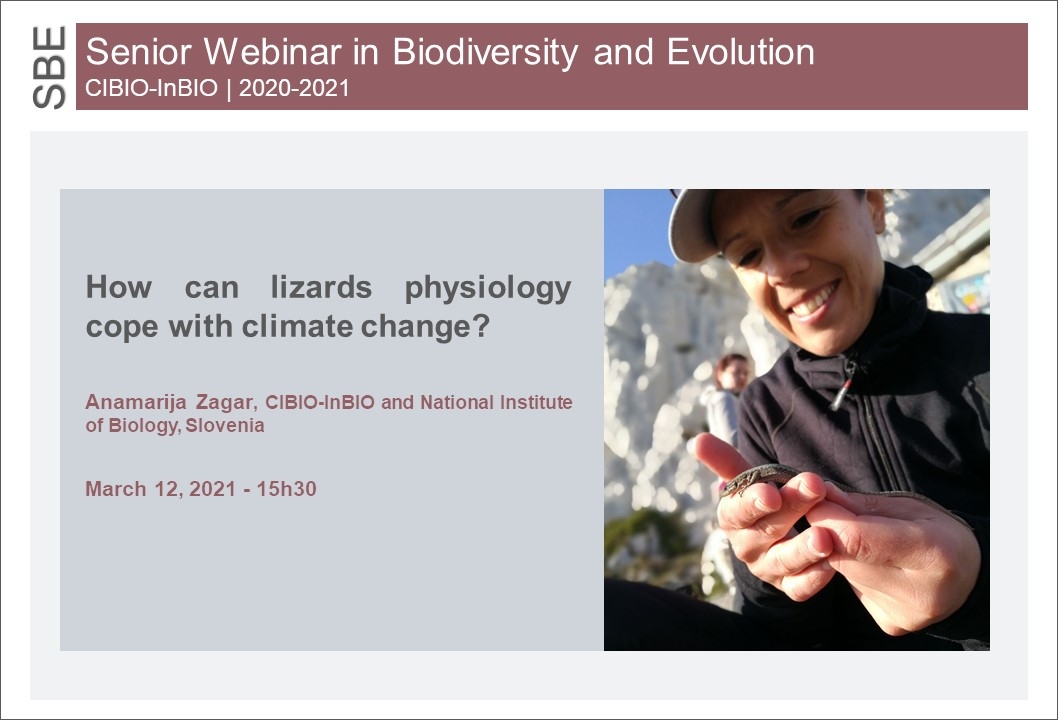How can lizards physiology cope with climate change?
12 Mar 2021 - Anamarija Zagar, CIBIO-InBIO and National Institute of Biology, Slovenia |15h30

SENIOR WEBINAR IN BIODIVERSITY AND EVOLUTION
Over 15,000 scientists from 184 nations recently warned of the collapse of our planet’s biosphere, with climate change being one of the major factors contributing to world’s biodiversity loss. In my opinion, it is our responsibility, as scientists, to now take urgent steps towards better understanding of mechanism underlying the biodiversity loss and to improve understanding of species resilience potential to climate change. The basic knowledge on response potential of species to climate change is still missing, especially for groups such as ectotherms, despite their immense diversity and fundamental ecological role. Reptiles, the most diverse group of terrestrial ectotherm vertebrates, are known to perform vital roles in the functioning of Earth’s ecosystems. But their life-history traits, especially physiology, are far from understood. However, several latest studies, including our own, suggested that physiological traits related to water availability of Lacertid lizards may be the most important traits involved in adaptation to diverse climates of the Earth (in the past), as well as exhibit potential for plasticity (current time and future). I will present some recent research work done investigating properties of metabolism in ectotherms, focusing on the metabolic capacity and antioxidative stress markers, using model organisms and two approaches: experimental use of climate chambers and elevational gradients as natural experimental set-ups.
Anamarija Zagar focuses her research to physiology, especially to the study of metabolism in ectotherms, with a specific focus on lizards. Her recent work includes using climate chambers to test trait responses of membranes and metabolic capacity to variable conditions in ectothermic organisms and using model organisms with a widespread distribution from environmental gradients that function as natural experimental laboratories. In the Functional Biodiversity research group at CIBIO-InBIO institute in Portugal, she was involved in a successful application of a project in 2018 on climate change responses in Gallotia lizards in Tenerife, where they will try to disentangle the background evolutionary processes involved in physiological constraints to climate change in lizards. In 2019, she has also been invited to participate as a member of the scientific committee of the World herpetology congress, and became the national representative (from Slovenia) in the COST action on pesticide risk assessments of amphibians and reptiles. Apart from scientific research, she has been involved in several LIFE conservation projects where she gained valuable experience in applied nature conservation.
[Host: Miguel A. Carretero, Functional Biodiversity - FBIO]
Click here to watch the webinar recording
Click here to watch the webinar recording